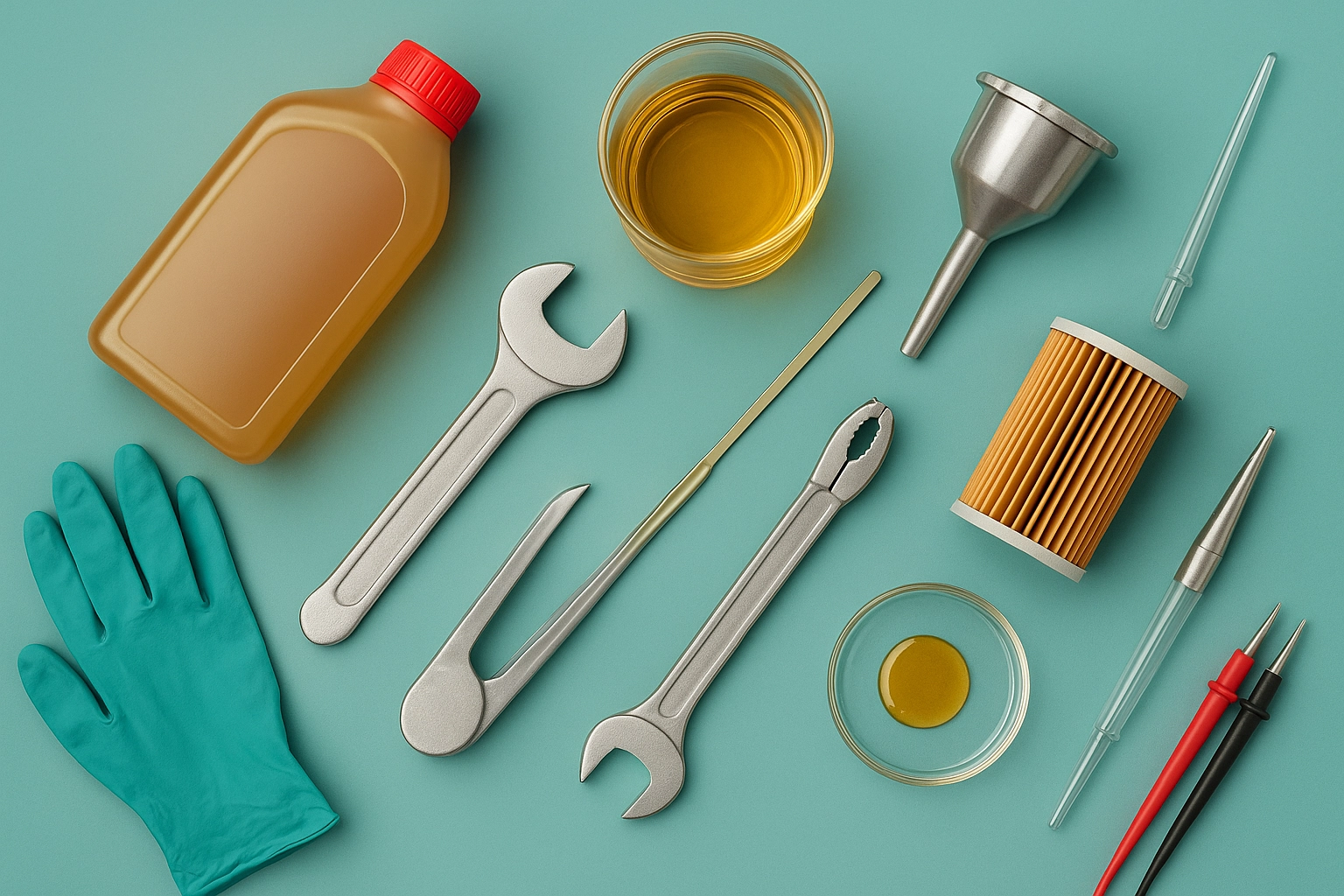ASTM D8111 Engine Oil Wear Protection Test
The ASTM D8111 test is a critical component in the quality assurance and research & development (R&D) processes of automotive lubricant manufacturers. This standardized procedure evaluates the wear protection performance of engine oils, providing valuable insights into their ability to minimize wear under high-stress conditions. The test is particularly important for ensuring that lubricants meet stringent industry standards and contribute to longer engine life.
The ASTM D8111 test involves subjecting a specimen of engine oil to a specific set of operating conditions designed to simulate real-world engine operation. This includes temperature, pressure, and the presence of metallic particles that mimic abrasive wear. The primary objective is to assess how well the lubricant prevents or reduces metal-to-metal contact within the engine, which can lead to increased wear and decreased efficiency.
The test apparatus used in ASTM D8111 typically consists of a reciprocating cylinder block and piston assembly. This setup allows for controlled movement that simulates the motion found in an internal combustion engine. The specimen of engine oil is introduced into this environment, where it undergoes continuous cycles of heating, cooling, and abrasion. During these cycles, the wear debris generated is collected and analyzed to determine the effectiveness of the lubricant in preventing wear.
The test parameters for ASTM D8111 are meticulously defined within the standard. These include temperature control, cycle duration, load application, and the type of metallic particles used. Compliance with these parameters ensures accurate and repeatable results, which are essential for reliable evaluation of the lubricant's performance. The acceptance criteria for this test focus on the amount of wear debris produced during the testing period. Lower levels of wear debris indicate better wear protection provided by the engine oil.
Engine oils that pass ASTM D8111 with acceptable levels of wear debris are considered to have excellent wear protection properties, making them suitable for use in high-performance engines where extended service intervals and minimal wear are crucial.
The test results from ASTM D8111 play a vital role in the development and quality control processes of engine oil manufacturers. By understanding how their lubricants perform under these specific conditions, companies can make informed decisions about ingredient selection, formulation adjustments, and process improvements. This not only enhances product performance but also contributes to overall vehicle reliability and customer satisfaction.
In addition to its primary function in evaluating wear protection, ASTM D8111 serves as a benchmark for comparing different engine oils across various brands. It allows quality managers and compliance officers to ensure that their lubricants meet or exceed industry standards, thereby maintaining a competitive edge in the marketplace. For R&D engineers, this test provides crucial data that can guide further innovations aimed at developing next-generation lubricants with enhanced wear resistance.
The ASTM D8111 engine oil wear protection test is not only essential for automotive manufacturers but also beneficial for suppliers of raw materials used in lubricant production. By participating in this testing process, they gain valuable feedback on the quality and performance of their inputs, facilitating continuous improvement and ensuring consistency across batches.
Applied Standards
| Standard | Description |
|---|---|
| ASTM D8111-09(2014) | This standard specifies the procedure for determining the wear protection of engine oils under conditions that simulate severe service conditions. It is used to evaluate the ability of engine oils to reduce metal-to-metal contact and minimize wear. |
| ASTM D8307-12 | A companion standard that provides additional guidelines for interpreting the results obtained from ASTM D8111, ensuring consistency in evaluation methods across laboratories. |
The application of these standards ensures that the testing process is consistent and reliable, providing accurate measurements of wear protection. The use of standardized procedures also facilitates comparability between different manufacturers and test results from various labs worldwide.
Why Choose This Test
- Precision in Evaluating Wear Protection: ASTM D8111 provides a precise method for assessing the wear protection capabilities of engine oils, which is crucial for maintaining optimal engine performance and longevity.
- Industry-Wide Acceptance: The test is widely recognized within the automotive industry, ensuring that results are credible and universally accepted. This recognition helps in building trust with customers and stakeholders.
- Data for Continuous Improvement: By using ASTM D8111, manufacturers can gather detailed data on their lubricants' performance, which guides ongoing research and development efforts aimed at enhancing product quality.
- Regulatory Compliance: Ensuring compliance with industry standards is essential for maintaining market access. ASTM D8111 supports this by providing clear criteria against which products can be evaluated.
The test offers a comprehensive approach to evaluating wear protection, making it an indispensable tool for automotive lubricant manufacturers seeking to enhance their product offerings and meet stringent quality requirements.
Environmental and Sustainability Contributions
- Eco-Friendly Lubricants: By improving the wear resistance of engine oils, ASTM D8111 helps reduce the amount of metal particles released into the environment during vehicle operation. This contributes to better air quality and reduced environmental impact.
- Energy Efficiency: Enhanced wear protection leads to more efficient engines, which consume less fuel and emit fewer pollutants. This aligns with broader sustainability goals by promoting cleaner transportation systems.
- Sustainable Manufacturing Practices: The insights gained from ASTM D8111 enable manufacturers to adopt sustainable practices in their production processes. For instance, optimizing lubricant formulations can lead to reduced waste and energy consumption throughout the supply chain.
By integrating ASTM D8111 into their quality assurance protocols, automotive lubricant companies contribute significantly to environmental sustainability while enhancing product performance and customer satisfaction.





